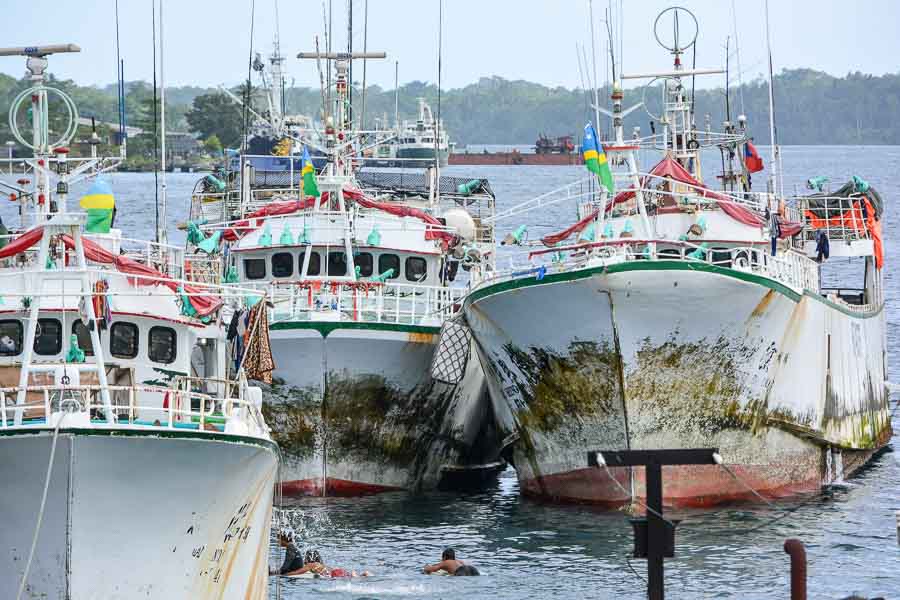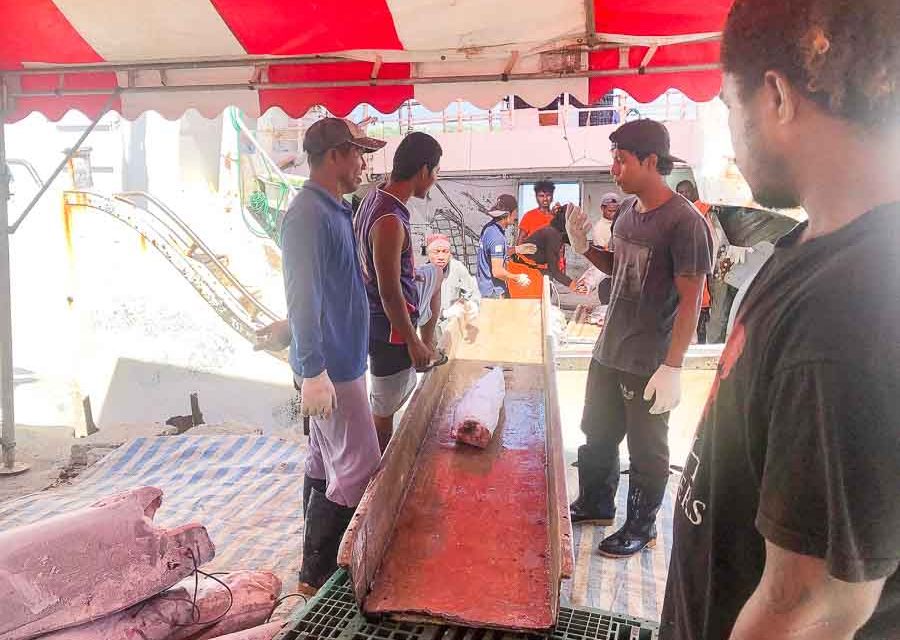HONIARA – The call by the members of the Pacific Islands Forum Fisheries Agency (FFA) for a freeze on the catch and effort for South Pacific albacore on the high seas south of the equator won support at December’s Tuna Commission meeting.
Going into the 18th meeting of the Western and Central Pacific Fisheries Commission (WCPFC18), FFA members raised serious concerns about the situation facing albacore stock in the region.
FFA members called for WCPFC to act immediately to prevent further declines in the South Pacific albacore stock while work continues on a revised conservation and management measure (CMM) for this species of tuna.
Members also wished to signal their intention to bring forward a revised South Pacific albacore CMM for consideration in 2022, a statement from the fisheries organisation said.
“We reiterate our commitment to the implementation of zone-based management arrangements for longline fisheries within our waters and will be seeking compatible limits on catch and effort for South Pacific albacore on the high seas,” it said.
Addressing the underperformance of the longline albacore fishery
In a briefing with regional journalists before the start of the Tuna Commission meeting in December, the FFA Director-General, Dr Manu Tupou-Roosen, said that addressing the underperformance of the longline fishery, especially South Pacific albacore, was a directive from Pacific Islands fisheries ministers.
“Consistent with those directives, there are steps that have been taken by our FFA officials. With South Pacific albacore fishery, the members have been voicing their strong concerns in relation to the situation facing the stock,” Dr Tupou-Roosen said.
“They have underlined the need for strong management action by the Commission to rebuild the stock to support the economic viability of our fleets.
“Also, the latest stock assessment for South Pacific albacore suggests that the status has continued to decline in recent years, and that without immediate cuts in catch and effort the conditions under the target reference point, which we fought so hard to get three years ago, will not be achieved.”
She added that the recent shift of effort from the tropical longline fishery had resulted in increased targeting of South Pacific albacore by distant water fishing nations (DWFNs) on the high seas, and that the current measure was not effective in restricting catch and effort for this tuna.

Solomon Islands flagged longline fishing vessels tied up at Noro
Cooperation with DWFNs vital
Speaking to regional journalists after WCPFC18, Dr Tupou-Roosen said FFA members had been “fully aware” that it was “a big ask” taking the freeze on albacore fishing to the Commission, especially for the DWFNs.
“We recognised going in [to the annual meeting] that this is a hard call, especially for those distant water fishing nations that fish on the high seas,” Dr Tupou-Roosen said.
“But we were looking to make it clear that this is a priority area for us, especially while we’re working towards achieving the target reference point that was set a couple of years ago.”
She said members also wanted to ensure that Pacific cooperation would be employed to bring back economic profitability into the longline fishery, as well as to work towards achieving the target reference point that had already been agreed by Commission members.
“So the outcome was partially achieved, in the sense that we did not get binding text around this cap of catch and effort. We were able to get … language in to encourage Commission members to manage voluntary limits of South Pacific albacore catch and effort from recent years until a measure is adopted in 2022.”
She added that FFA was very pleased that this mark had been drawn in the sand again, as the longline fishery was one that members continued to work hard on to ensure that the necessary limits could be achieved.
But it could not be done by the FFA alone and required broader cooperation with the Commission.
“So the call to manage their limits is an important building block for the hard limits that will happen in due time.
“Part of this effort on the South Pacific albacore fishery, which is led by Fiji as the current Chair of FFC, is the development of a revised conservation and management measure to ensure those limits and controls are put in place to regulate and manage fishing on the high seas, more generally in the longline fishery.
Call for immediate cuts backed by science
Dr Tupou-Roosen said the need to ensure the health of South Pacific albacore, which has been under pressure, highlighted the importance of the decision taken at the commission meeting.
“What the science is telling us is that we need to take immediate cuts, and if we don’t do that, our problem will just get bigger,” she said.
“A couple of years ago, the Commission took a landmark decision to adopt a target reference point, which would provide an overall cap for the South Pacific albacore fishery. And it did require cuts. But this hasn’t happened yet.
“The longer we leave it, the bigger the problem [becomes]. And so the immediate impact is that we will continue to see the science tell us that there are declines in the stock until we undertake those cuts,” Dr Tupou-Roosen stated.
She said that if the decision was not considered, FFA members would continue to face considerable challenges to the economic viability of their domestic fleets. Therefore, it was vitally important that the WCPFC responded as a whole to this call from the FFA membership.





